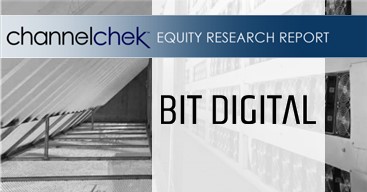
Research News and Market Data on BTM
October 07, 2025 8:00 AM EDT Download as PDF
ATLANTA, Oct. 07, 2025 (GLOBE NEWSWIRE) — Bitcoin Depot Inc. (Nasdaq: BTM) (“Bitcoin Depot” or the “Company”), a U.S.-based Bitcoin ATM operator and leading fintech company, today announced that it has entered into definitive agreements to sell an aggregate of 4,285,716 shares of its Class A common stock, at a purchase price of $3.50 per share in a registered direct offering. The closing of the offering is expected to occur on or about October 8, 2025, subject to the satisfaction of customary closing conditions.
H.C. Wainwright & Co. is acting as the exclusive placement agent for the offering.
The aggregate gross proceeds to the Company from the offering are expected to be approximately $15 million, before deducting the placement agent fees and other offering expenses payable by the Company. The Company currently intends to use the net proceeds from the offering for general corporate purposes.
The shares of Class A common stock described above are being offered pursuant to a “shelf” registration statement (File No. 333-288208) filed with the Securities and Exchange Commission (“SEC”) on June 20, 2025 and declared effective on July 1, 2025. The offering is being made only by means of a prospectus, including a prospectus supplement, forming a part of the effective registration statement. The prospectus supplement and the accompanying prospectus relating to the shares of Class A common stock being offered will be filed with the SEC and be available at the SEC’s website at www.sec.gov. Electronic copies of the prospectus supplement and the accompanying prospectus relating to the securities being offered may also be obtained, when available, by contacting H.C. Wainwright & Co., LLC at 430 Park Avenue, 3rd Floor, New York, NY 10022, by telephone at (212) 856-5711 or e-mail at placements@hcwco.com.
This press release shall not constitute an offer to sell or the solicitation of an offer to buy any of the securities described herein, nor shall there be any sale of these securities in any state or jurisdiction in which such offer, solicitation or sale would be unlawful prior to the registration or qualification under the securities laws of any such state or jurisdiction.
About Bitcoin Depot
Bitcoin Depot Inc. (Nasdaq: BTM) was founded in 2016 with the mission to connect those who prefer to use cash to the broader, digital financial system. Bitcoin Depot provides its users with simple, efficient and intuitive means of converting cash into Bitcoin, which users can deploy in the payments, spending and investing space. Users can convert cash to bitcoin at Bitcoin Depot kiosks in 47 states and at thousands of name-brand retail locations in 31 states through its BDCheckout product. The Company has the largest market share in North America with over 9,000 kiosk locations as of August 2025. Learn more at www.bitcoindepot.com.
Forward Looking Statements
This press release and any oral statements made in connection herewith include “forward-looking statements” within the meaning of Section 27A of the Securities Act of 1933, as amended, and Section 21E of the Securities Exchange Act of 1934, as amended. Forward-looking statements are any statements other than statements of historical fact, and include, but are not limited to, statements regarding the completion of the offering, the satisfaction of customary closing conditions related to the offering and the intended use of net proceeds from the offering. These forward-looking statements are based on management’s current beliefs, based on currently available information, as to the outcome and timing of future events. Forward-looking statements are often identified by words such as “anticipate,” “appears,” “approximately,” “believe,” “continue,” “could,” “designed,” “effect,” “estimate,” “evaluate,” “expect,” “forecast,” “goal,” “initiative,” “intend,” “may,” “objective,” “outlook,” “plan,” “potential,” “priorities,” “project,” “pursue,” “seek,” “should,” “target,” “when,” “will,” “would,” or the negative of any of those words or similar expressions that predict or indicate future events or trends or that are not statements of historical matters, although not all forward-looking statements contain such identifying words. Such statements involve known and unknown risks, uncertainties, and other factors that could cause the actual results of the Company to differ materially from the results expressed or implied by such statements. In making these statements, the Company relies upon assumptions and analysis based on the Company’s experience and perception of historical trends, current conditions, and expected future developments, as well as other factors the Company considers appropriate under the circumstances. The Company believes these judgments are reasonable, but these statements are not guarantees of any future events or financial results. These forward-looking statements are not intended to serve as, and must not be relied on by any investor as, a guarantee, an assurance, a prediction or a definitive statement of fact or probability. Actual events and circumstances are difficult or impossible to predict and may differ from assumptions. Many actual events and circumstances are beyond our control.
If any of these risks materialize or our assumptions prove incorrect, actual results could differ materially from the results implied by these forward-looking statements. There may be additional risks that we do not presently know or that we currently believe are immaterial that could also cause actual results to differ from those contained in the forward-looking statements. In addition, forward-looking statements reflect our expectations, plans or forecasts of future events and views as of the date of this press release. Subsequent events and developments could cause our assessments to change.
We caution readers not to place undue reliance on forward-looking statements. Forward-looking statements speak only as of the date they are made, and we undertake no obligation to update publicly or otherwise revise any forward-looking statements, whether as a result of new information, future events, or other factors that affect the subject of these statements, except where we are expressly required to do so by law. All written and oral forward-looking statements attributable to us are expressly qualified in their entirety by this cautionary statement.
Contacts:
Investors
Cody Slach,
Gateway Group, Inc.
949-574-3860
BTM@gateway-grp.com
Media
Brenlyn Motlagh, Ryan Deloney
Gateway Group, Inc.
949-574-3860
BTM@gateway-grp.com

Source: Bitcoin Depot Inc.
Released October 7, 2025









